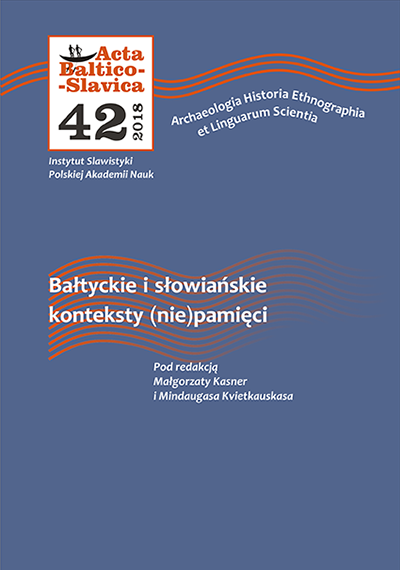Hybrid identities in the era of ethno-nationalism: The case of the krajowcy in Lithuania
Hybrid identities in the era of ethno-nationalism: The case of the krajowcy in Lithuania
Author(s): Darius StaliūnasSubject(s): Recent History (1900 till today), Nationalism Studies, 19th Century, Identity of Collectives
Published by: Instytut Slawistyki Polskiej Akademii Nauk
Keywords: krajowcy; nationalism; Lithuania; Belarus; hybrid identification; civic nationalism; personal autonomy model; identity ideology;
Summary/Abstract: This article deals with the identification of the so-called krajowcy – a relatively small group of Polish-speaking activists in Lithuania and Belarus in the late nineteenth and early twentieth century who promoted an idea of the re-establishement of the Grand Duchy of Lithuania. This article claims that the krajowcy democrats (Michał Römer, Tadeusz Wróblewski, Konstancja Skirmuntt and others) were not nationally indifferent. On the contrary, they promoted a clearly formulated national identity ideology, different to the dominant (ethno-linguistic) one. First of all, the krajowcy were nationalists in a civic sense: they were Lithuanians, citizens of Lithuania within its historical boundaries. In addition, some of them, for example Wróblewski, suggested strengthening ethno-linguistic nationalism as well, otherwise his national personal autonomy concept would simply not have worked. Others, such as Konstancja Skirmuntt, Juozapas Albinas Herbačiauskas and Michał Römer, expressed a hybrid identification with several national cultures, and sometimes their self-identification was even reminiscent of identity ideologies that had dominated in earlier historical periods.
Journal: Acta Baltico Slavica
- Issue Year: 2018
- Issue No: 42
- Page Range: 253-270
- Page Count: 18
- Language: English

